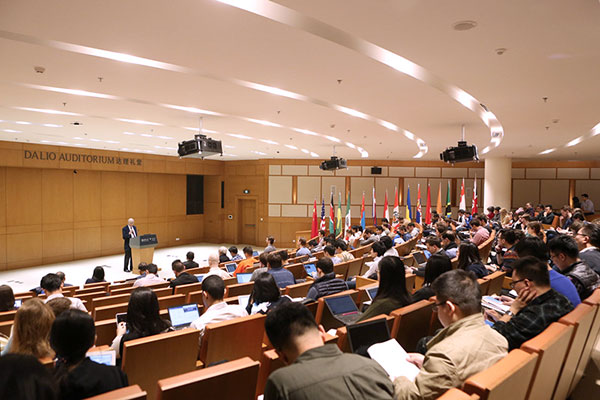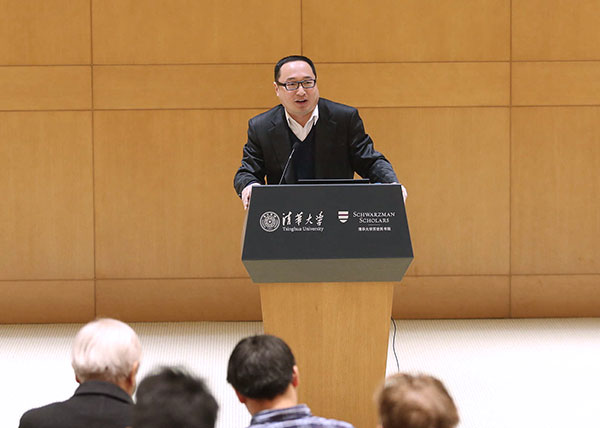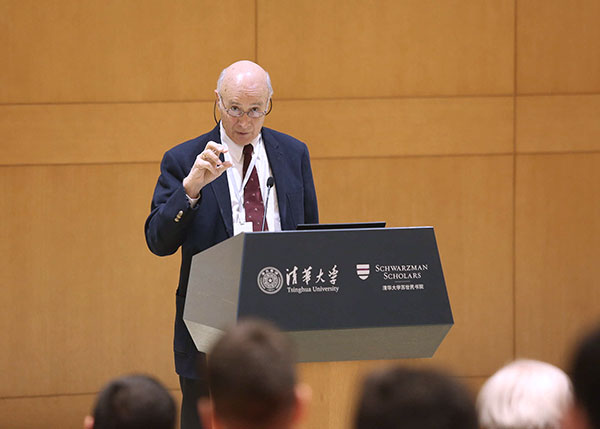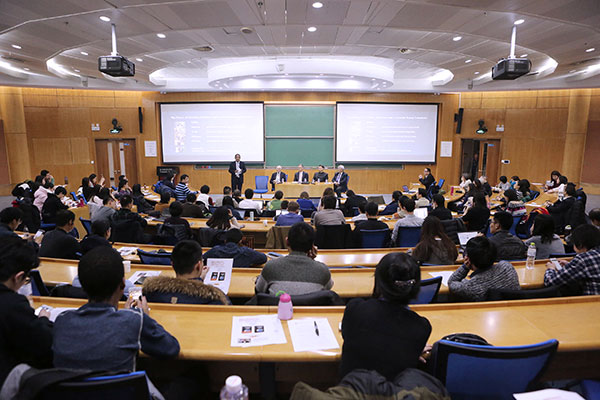On January 4th, Joseph Nye, the father of “soft power” and former Dean of John F. Kennedy School of Government, Harvard University, lectured in the “Leading Issues in International Relations” course in Schwarzman College of Tsinghua University and had in-depth exchanges with the students.

the lecture
The “Leading Issues in International Relations” course, with analysis of the current status and trend of international relations, is taught by well-known international relations experts from home and abroad. This course talks about hot issues in international relations from different angles and deepens students’ understanding of international relations through seminars. Lecturers of this course include Amitav Acharya, Professor of Schwarzman College and Professor of School of International Service, American University, and Ni Shixiong, former Dean of School of International Relations & Public Affairs, Fudan University and Professor of Schwarzman College.

Jason Cheng gives a welcome address
Jason Wenhao Cheng, Associate Dean of Schwarzman College gave a welcome address. Joseph Nye is a representative scholar in the neo-liberalism school of the international relations theory, and is known as the first person who developed the concept of “soft power”. In the 1990s, after being put forward by Joseph Nye, the “soft power” concept quickly swept the world. In the lecture, Joseph Nye mentioned three ways of influencing others- you can coerce them with threats; you can induce them with payments; or you can attract and co-opt them to want what you want. He believed that “soft power” exerted its power by relying on its own attraction, rather than forcing others to do what they don’t want to.

Joseph Nye gives lecture
In the class, Joseph Nye elaborated the concept of “soft power” in detail, including cultural attraction, political value attraction and abilities to set international rules and determine political issues. Joseph Nye pointed out that many people now had misunderstandings of “soft power” and “hard power”. He said that the two were only different forms of national strength and that neither was better than the other. Joseph Nye also believed that “soft power” in the information age had even greater influence but its role was still limited.
Later, Joseph Nye put forward the concept of “smart power” to the students, and pointed out that this was the organic integration of “soft power” and “hard power”. According to him, “smart power” not only emphasizes the necessity of military power, but also attaches great importance to alliance, partnership and mechanisms at all levels. He also analyzed the strategies that different countries adopted to apply “smart power”.

the lecture
On January 3rd, Joseph Nye had a thought-provoking discussion on the future trend of Sino-US relations and world order with He Yafei, former Vice Foreign Minister of China, Jia Qingguo, Dean of School of International Studies, Peking University, and Ni Shixiong, former Dean of School of International Relations & Public Affairs of Fudan University. The lecture attracted students from different departments and received an overwhelmingly positive response, as students raised a lot of questions and received witty replies from the guests.